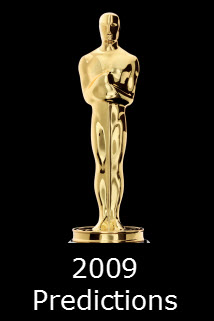Avatar (2009)


Content by Tony Macklin. Originally published on December 15, 2009 @ tonymacklin.net.
At the end of a decade, James Cameron seeks revolution -- not only in the way we see movies, but in the way we see life.
With Avatar, Cameron is on a risky flight of fancy. His new movie is significant not only for its technical prowess which is obvious, but for its vision which could be groundbreaking -- or in this case, cosmic changing. Or it could wind up in free fall.
Avatar is revolutionary in that it tries to shake up established attitudes. In the case of Avatar, 3-D is decisive, daring, and drastic.
Director/writer James Cameron is promoting a new world against the old white world. The new world is green populated by blue figures; it is nature versus machines. Avatar is pro-green.
As such Avatar is a political film. It is also a very liberal film. Steven Spielberg's War of the Worlds (2005) had a political bent, but Cameron's is blatant. It's the "tree huggers" against the forest destroyers. American corporate, military might is the enemy.
But the human invaders come from a "dying" world. They have done their damage, and now seek new frontiers to mine. Avatar sides with the alien culture against the "civilized."
Some -- perhaps many -- audiences will resist Avatar because of its points of view. How many will enthusiastically cheer "the tree huggers" against the American military?
In present fragmented America, it is difficult to imagine that a sizeable portion of viewers won't be offended and angry.
Cameron tries to sweep them along on the wings of CGI action. It's a real gamble.
Avatar is lengthy -- 161 minutes [two hours, 41 minutes, and 34 seconds]. Part of its length is due to Cameron's infatuation with CGI -- directors fall in love with their artificial imagery. They can't help themselves. Where one scene would suffice, a repetition has to be the norm.
Avatar is the story of Jack Sully (Sam Worthington) a former Marine who is chosen to replace his dead brother in the Avatar Program, although he is unprepared for it.
But Dr. Grace Augustine (Sigourney Weaver) trains him and accompanies him on some of his odyssey.
Jake is wheel chair-bound because he was wounded in action and is now paralyzed from the waist down. Science has found a way to transfer a human consciousness to an avatar's embodiment.
The mind of Jake -- in the body of an avatar, with his motor skills intact -- is sent to Pandora, an extraterrestrial moon, where he's to relate to the inhabitants to find out how best to mine their territory for precious metals, which an aggressive corporation is seeking.
On his many mental trips to Pandora, Jake begins to relate to the culture and spirituality of the Na'vi people, especially a powerful female (Zoe Saltana). They begin to fall in love.
But the forces of materialism are approaching and encroaching. War is inevitable.
Avatar is like a western in the sky.
The first half could remind one of Delmer Daves' Broken Arrow (1950), in which a white scout (James Stewart) learns about the Apache culture and falls in love with an Apache woman (Debra Paget). Broken Arrow was perhaps the first major Hollywood movie that was empathetic with the Indians against the white man.
Dances with Wolves (1990) is another memorable movie about a white man embracing an alien culture.
Or Avatar may remind one of The Mission (1986), where the natives have to try to defend against a killing, materialistic foe. But Avatar offers stronger resistance than the Jesuits and the Brazilian natives could in The Mission.
In Avatar we see arrows bouncing harmlessly off airships, but the Mission didn't have CGI in their arsenal. The Na'vi do.
Like the Star Child in Stanley Kubrick's 2001: A Space Odyssey (1968), Cameron's avatar is a transformative figure.
May the Force of Green be with us.

















